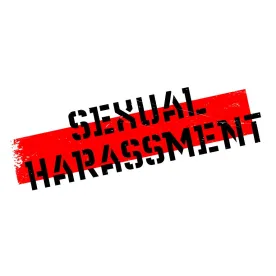Nearly all employers in Connecticut will now have to provide sexual harassment training to employees under Connecticut Public Act No. 19-16, also referred to as the “Time’s Up Act,” an amendment to existing state law that Connecticut Governor Ned Lamont signed into law on June 18, 2019.
The law requires employers of all sizes to provide sexual harassment training to supervisors by October 1, 2020 (or within six months of their assumption of supervisory duties, after that time). Employers with at least three employees must provide such training to all other employees, not only supervisors, also by October 1, 2020 (or within six months of hire, after that time).
Previously, Connecticut law required only that employers with at least 50 employees provide sexual harassment training to supervisors.
Training and Posting Requirements for Employers with At Least Three Employees
Effective October 1, 2019, the Act amends Section 1, Section 46a-54 of the general statutes to require employers with at least three employees to provide two hours of sexual harassment training to all employees within one year of October 1, 2019. Employers who already had provided such training to employees after October 1, 2018, need not provide it a second time.
For new employees hired on or after October 1, 2019, employers must conduct such training within six months of hire, provided the Commission on Human Rights and Opportunities (CHRO) has developed and made available training materials in accordance with the law.
Under current law, employers with at least three employees already must post in a prominent and accessible location information on “the illegality of sexual harassment and remedies available to victims of harassment.” Under the new law, employers also must provide, not later than three months after the employee’s start date, a copy of that information. In addition, employers must send the information to each employee by email with a subject line that includes the words “Sexual Harassment Policy” or similar words. The employer may use employees’ company-provided email accounts or employees’ personal email addresses, if available. If employees do not have company-provided email accounts, the employer must post the information on the “employer’s Internet web site, if the employer maintains such an Internet web site.” An employer can comply with this distribution requirement by providing employees with the link to the website of the CHRO on sexual harassment by email, text message, or in writing.
Supervisor Training Requirements for Employers with Fewer Than Three Employees
Employers with fewer than three employees are not required to provide sexual harassment training to all of their employees. However, they must train their supervisory employees and must do so within one year of October 1, 2019. Employers who have provided their supervisors such training after October 1, 2018, need not do so a second time.
Employers must provide training to new supervisory employees hired on or after October 1, 2019, within six months of their assumption of a supervisory position, provided the CHRO has developed and made available training materials in accordance with the law.
Additional Provisions
The new law requires the CHRO to develop and include on its website “a link concerning the illegality of sexual harassment … and the remedies available to victims of sexual harassment.” Additionally, the CHRO is tasked with developing and making available at no cost to employers an online training video or other interactive method of training.
Among other requirements, training must include information on the federal and state statutory provisions covering sexual harassment and remedies available to victims of sexual harassment. Employers must provide supplemental training at least every 10 years.
A bill awaiting Governor Lamont’s signature would impose a $750 fine on violations.
The new law imposes significant additional obligations on employers. In addition to expanding posting and training requirements, it also limits corrective action an employer can take in response to an allegation of sexual harassment, extends the statute of limitations for filing a discriminatory practice claim with the CHRO from 180 days to 300, and expands potential damages that can be assessed by the CHRO and, if a complaint is filed in court, the damages a court may award.





 />i
/>i

